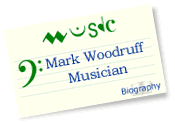

|
| Budgeting for music |
| A deeper, wider musical context |
| Only the greatest beauty will do |
| Music in every church |
| The
Church and a new music |
Budgeting for music
But this handily brought me to my second point. I asked the bishop to compare most parishes' annual accounts and the expenditure on music and worship, with the significance for the life and mission of each congregation of its Sunday gathering for worship. The expenditure on music making and the presentation of our praise tends to be pitched at a much lower priority level than building maintenance, running costs, quota commitments, and so on. Yet the Sunday services are usually a congregation's principal ordinary opportunity for mission, proclamation, vocation, teaching, spiritual growth, walking together on the rugged pathway. I have always been curious to know why it is that a generous provision for the music of worship (which is as costly as an alabaster jar) is not routinely written into the budgets of churches wanting to progress in faith. (Then again, I could never persuade my own church council or treasurer that this was a not merely a desirable luxury.) It's not that anything else should suffer a cutback - simply that it is urgent that we realize that here is the point at which we must now exercise, body-build and grow.
I was greatly privileged to work at St Edmundsbury Cathedral with an organist, Mark Blatchly, who had exceptional gifts in getting people to sing. The Cathedral has a very strong parish community and is very proud of its music establishment, which is mostly sustained by highly motivated volunteers. Mark was concerned that, as with many churches, St Edmundsbury could be tempted to live for itself and provide itself with a very aesthetically pleasing programme of self-entertainment along the lines of the English choral tradition. Our choristers came from a small clutch of church and boys' prep schools and, while the effect on Thursday, Friday and Sunday was excellent in the cathedral services, their sound did not go out into all lands. Much was being received, and we wondered how we could be more blessed, and give. Mark mainly and I to a much smaller extent started going into as many local infant and junior schools to be free musicians and singing coaches. We played the piano for assemblies and helped some of the schools without any musicians, let alone music co-ordinators, to open up a sorely missed dimension in their lives. The arrangement with heads was that we could recruit for a new cathedral choir - the Colts. Perhaps from this group of interested boys and girls Mark could spot likely probationers for the main choir, and perhaps too broaden the range of schools from which we were currently recruiting. But more important, the Cathedral community was giving to any child in the vicinity an opportunity to make and enjoy music, otherwise denied owing to the barbarian cuts over many years that prevented the effective learning of music and art and creativity from so many schools. We vowed that Cathedral staff would not place these people in front of endless varieties of percussion instruments, shakers and woodblocks. If this was going to work it was to be serious work, bringing solid achievements that created pride, promoted unforeseen opportunity and unimagined fun.

After a term and a half, Mark felt able to let some of the six-year-olds sing a piece at an Evensong. It was a said Evensong, but the children were rigged up in slightly-too-big cassocks and practised to walk in almost faultlessly. They sat in stillness and uncomprehending curiosity until after the Third Collect. They sang a carol Mark had arranged (they couldn't master it in time for Christmas, but it didn't matter too much as we were between Candlemas and Lady Day). Each child had the different call of a bird to sing, as well as the words in honour of the Christ Child and his Mother. It was simple, very brief, and not bad. Mums from the Mildenhall estate who had never set foot in the Cathedral before were weeping with a pride that Mary herself would have known so well. And I am confident to claim that on that late winter Tuesday evening a dozen parents and six or seven boys and girls had an experience of loving reverence that they had never known before.
You could say that, of course, the Cathedral had the resources to support this kind of outreach work in schools, but in fact neither Mark nor I were employed to spend our time on very 'different' tasks like this, which were not part of our ordinary work. I think however a case was made, and for the future the necessary time was written into job descriptions. Ten years on, I believe the work in schools is an indispensable feature of the music department's links with the town and a stimulus to the Cathedral's own development. Mark Blatchly and I both became convinced that here was not only an opportunity to give a rare return gift to an otherwise far too distant part of the community, but we could also confront a malaise (a blight) in education, in culture, in people's horizons.